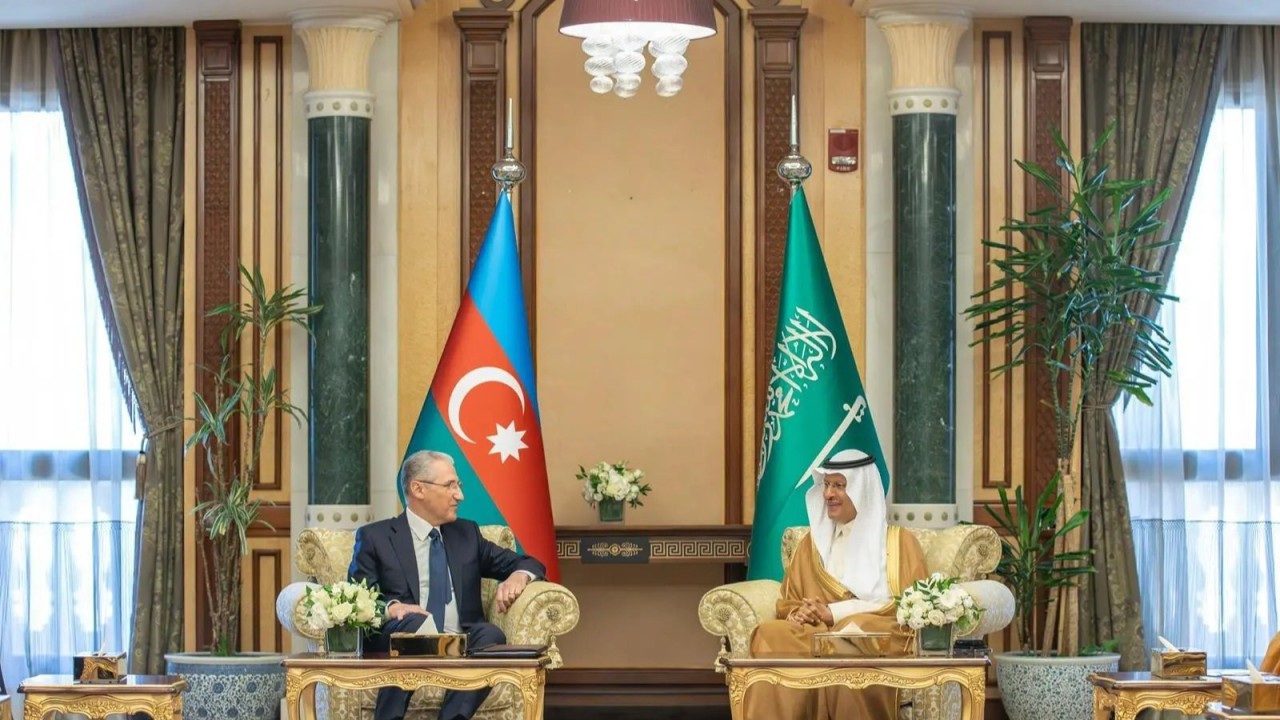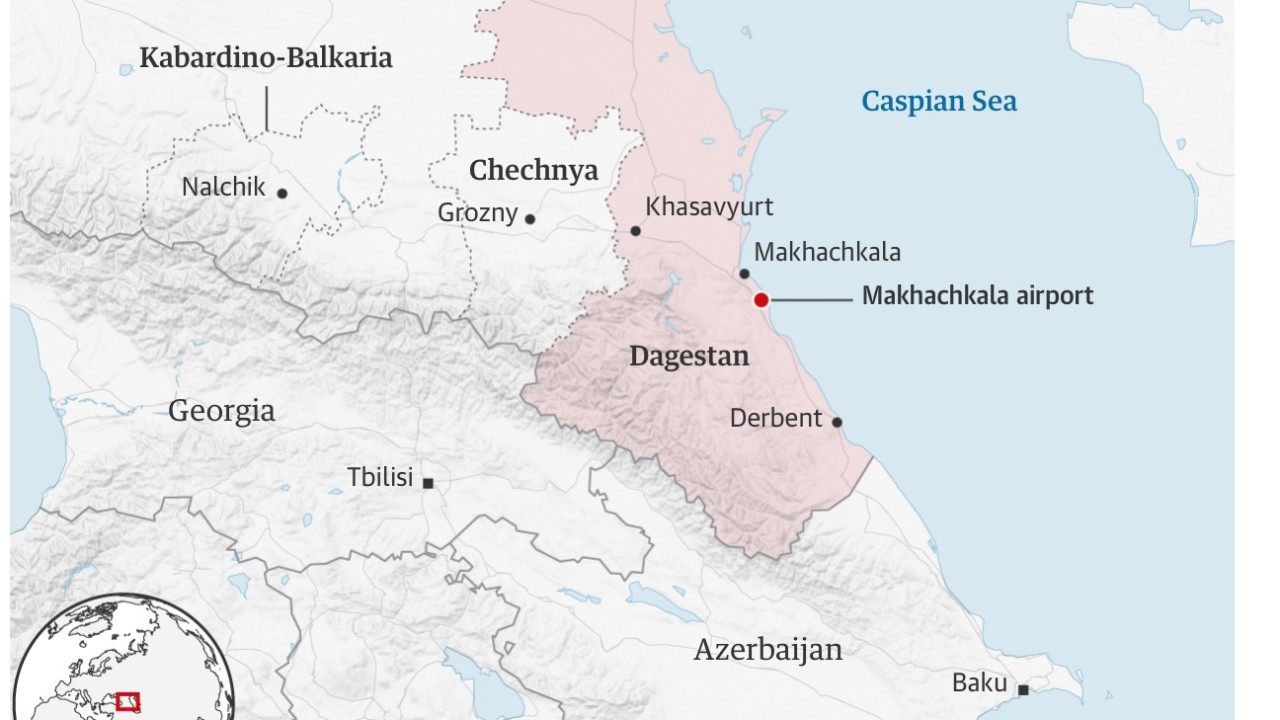Leading this week
This week’s Azerbaijan Brief examines recent developments around SOCAR, Baku’s state energy firm — and crown jewel.
SOCAR is a key cog in Azerbaijan’s far-flung influence machine. The energy firm increasingly serves as a vehicle for strategic acquisitions, transnational corruption and influence operations — particularly across Turkey, Central Europe and the Balkans. (Using its well-tested influence playbook — which involves a mix of strategic corruption and energy dealings — Baku has cultivated strategic partners at the heart of Europe.)
Amid geopolitical headwinds, Baku is wielding energy resources to expand its strategic value vis-à-vis global partners. And SOCAR plays a key role. Under the leadership of CEO Rovshan Najaf, the state energy firm is pursuing new markets, while leveling up ties with longtime associates (Abu Dhabi and Central Asia). In recent years, SOCAR has also expanded across new sectors: port management, renewable energy, petrochemicals and fiber optic infrastructure.
SOCAR is also carving out a greater role for itself across the domestic energy sectors of Turkey and the Balkans. In 2011, Azerbaijan entered the Romanian energy market by acquiring Romtranspetrol. (The deal was plagued by corruption concerns.) At present, SOCAR operates 74 gas stations in Romania and is poised to expand its domestic operations. SOCAR is also mulling plans to develop a gas distribution network in Bulgaria. (In 2023, Sofia provided SOCAR with a 10-year license to trade natural gas.)
SOCAR Turkey remains the linchpin of the firm’s global operations — and Azerbaijan’s influence network in Turkey. (In recent years, Baku has amassed unprecedented sway in Turkey, particularly across AKP business circles.) The Izmir-based Star Oil Refinery — which satisfies nearly 25 percent of Turkey’s oil needs — is a key source of Azeri influence in Ankara. (To date, the refinery constitutes one of the largest investment projects in Turkey.) SOCAR also operates gas distribution companies in Bursa and Kayseri — with lofty plans for greater influence across the Turkish energy sector.
Baku and its local agents view SOCAR Turkey as a critical springboard to build ties across the Turkish political elite. The firm has played a key role in cultivating the presidential clan — Turkish President Recep Tayyip Erdogan’s brother Mustafa Erdogan and brother-in-law Ziya Ilgen. (The latter owned SOCAR shares through various companies until 2013. Observers believe Ilgen acted as a proxy for Erdogan.)
Despite its lofty ambitions, Baku is grappling with declining energy reserves. Azerbaijan increasingly imports natural gas to satisfy local demand and meet export commitments. In recent years, SOCAR has struck energy deals with sanctioned Russian energy giant Gazprom to offset gas shortages. (Azerbaijan has long been considered a laundry for Russian oil.) Baku is also importing Turkmen gas via a swap arrangement with Iran to meet its growing energy demand.
What we are watching
Authoritarian bedfellows. Late last month, Hungarian energy oligarch Zsolt Hernadi touched down in Baku. Hernadi’s MOL Group, long dogged by corruption allegations, inked agreements around the development of the Azeri-Chirag-Guneshli (ACG) oil field. (In 2020, the MOL Group secured a 9.57 percent stake in the ACG oil field and a 8.9 percent stake in the Baku-Tbilisi-Ceyhan pipeline.) Hernadi and SOCAR CEO Rovshan Najaf also signed an exploration deal around the Shamakhi-Gobustan oil and gas field.
Earlier this summer, the MOL Group’s activities in Spain drew scrutiny. Citing national security concerns, Madrid blocked a deal by Hungary’s Ganz-Mavag Europe Zrt. to buy Spanish train manufacturer Talgo SA. (Ganz-Mavag is owned by a private equity fund run by the MOL Group.) Observers fret that Budapest’s takeover could disrupt exports of vital parts to Ukraine or facilitate Russian access to Europe’s critical infrastructure.
Media foray. SOCAR — following in the footsteps of AKP-aligned business heavyweights — has forayed into the Turkish media sector. In 2018, SOCAR affiliates Memmed Gulmammadov and Elnur Abdullayev launched the news channel Haber Global. (The latter is related to former SOCAR president Rovnag Abdullayev.) The media outlet also receives financial assistance from SOCAR executive Anar Aliyev, who maintains close ties to presidential circles.
In recent years, Haber Global has increasingly advanced specious, pro-Azerbaijani narratives. On the eve of Turkish presidential elections, the media outlet circulated unsubstantiated reports claiming overwhelming Armenian support for the CHP, Turkey’s main opposition party. Haber Global has also demonized protests against SOCAR’s robust ties with Israel. (See more below)
Gaza backlash. In recent months, pro-Palestinian groups (i.e., A Thousand Youth for Palestine) have staged demonstrations outside SOCAR’s Istanbul headquarters. Protestors are demanding Baku halt energy exports to Tel Aviv. (Azerbaijan meets an estimated 40 percent of Israel’s oil needs via the Baku–Tbilisi–Ceyhun pipeline.)
Baku’s ties with Tel Aviv has also raised tensions within the usually chummy Turkey-Azerbaijan relationship.
Why the world should care
Compartmentalized engagement with Azerbaijan, focused around energy cooperation, is poised to backfire. The European Union previously cultivated a similar relationship with Russia. The bloc’s short-sighted dependence on Russian gas bankrolled the Kremlin’s aggression, while expanding Russia’s capacity to meddle. Similarly, the EU’s “partnership” with Azerbaijan will further expose European energy markets to authoritarian powers, increasing long-term vulnerabilities.



